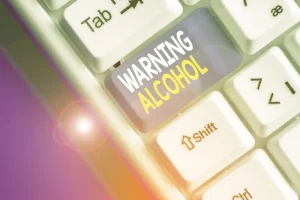Does Water Help with Alcohol Detox?

Addressing nausea is important to prevent vomiting that does drinking water help flush out alcohol can further dehydrate you. According to the National Institute on Alcohol Abuse and Alcoholism, water itself doesn’t directly flush alcohol out of your system, but it plays a crucial role in the detox process. Rehydrating by drinking water can alleviate the symptoms of dehydration, such as headache and dizziness, but it does not speed up the metabolism of alcohol in your liver. The process of metabolizing alcohol is more complex than many might think.
Time Frame for Alcohol Clearance

While staying hydrated is essential for your well-being, the elimination of alcohol depends on your body’s metabolism and can only be achieved through time. Drinking plenty of water is one of the best ways to flush alcohol from your system. Water helps to dilute the alcohol in your urine and can speed up the elimination process. Aim to drink at least alcohol rehab eight glasses of water per day, and even more if you have been drinking alcohol. How to Flush Alcohol From Urine – Before we dive into how to flush alcohol from your urine, it’s important to understand how alcohol is processed by the body. When you consume alcohol, your liver breaks it down into different compounds, including acetaldehyde, which is toxic to the body.
Can Drinking Coffee Help You Sober Up?
- In addition to allowing your body to process the alcohol on its own, there are several other things that you can do to help flush alcohol out of your system.
- Knowing how much to drink is challenging, and there is no one-size-fits-all answer.
- Symptoms of dehydration include dry mouth, less urine production, increased blood pressure, and heart rate.
- Exercise can help to flush alcohol out of your system, but it is important to note that it will not help to speed up the process.
However, maintaining good overall health through proper nutrition, hydration, and liver support can promote optimal liver function and thus support the elimination of alcohol over time. By gaining insight into how alcohol is flushed out of the system, individuals can make informed decisions to pursue a healthier, substance-free lifestyle. This comprehensive understanding empowers individuals to take steps towards a successful recovery.
Drinking coffee can bring health benefits, but it depends on when you drink it, new study finds
- After completing his Master’s in Psychology, he began pursuing his Doctor of Social Work degree from The University of Southern California.
- If possible, allow yourself adequate time to get a good night’s sleep so your body can recover.
- However, drinking water can slow down your alcohol consumption, potentially preventing excessive drinking and its subsequent effects.
- Urine tests can detect alcohol anywhere from 12 to 80 hours after your last drink.
- Drinking in moderation or abstaining from alcohol is the best way to prevent a hangover.
Try to urinate every hour or two, as this can help to flush the alcohol out of your bladder and reduce the amount of time it stays in your urine. If you’re trying to quit drinking, detoxing from alcohol will normally take 1-2 weeks. On the other hand, if you’re trying to quickly get alcohol out of your system for a drug and alcohol test or for a court ordered alcohol test, you’re out of luck. There’s nothing you can do to speed up how quickly alcohol leaves your system.
- The liver is responsible for breaking down the alcohol and metabolizing it into a less toxic form.
- It also helps to keep the body hydrated, which is important for all bodily functions, including the elimination of toxins.
- Water is an essential part of the body’s metabolism, and when combined with alcohol, it helps to rapidly flush the alcohol out of the body.
- Most of the work is done there—approximately 90% of alcohol is eliminated by the liver.
- Water helps remove the waste products from the blood in the form of urine.
By gaining insight into these processes, individuals can make informed decisions regarding their journey towards a healthier, substance-free lifestyle. The process by which alcohol is flushed out of the system involves intricate physiological mechanisms, including liver metabolism and urinary excretion. Understanding how alcohol is eliminated from the body is crucial for individuals seeking recovery from alcohol abuse. The liver is responsible for metabolizing and removing alcohol, not sweat. It’s important to note that there is no guaranteed way to flush alcohol from your urine completely. The best way to avoid detection is to abstain from alcohol altogether or to wait until it has completely left your system before taking a drug test.
‘I don’t know what I am supposed to feel, but surely life needs to have more to it than this’
Additionally, drinking water can help reduce the effects of a hangover, as it helps to replenish lost electrolytes. Drinking water before, during, and after drinking alcohol can help to offset the effects of dehydration and reduce the risk of alcohol-related health problems. Drinking water before drinking alcohol can help to slow the absorption of alcohol into the bloodstream, and drinking water during drinking can help to reduce the amount of alcohol consumed. Drinking water after drinking can help the body to flush out alcohol and its metabolites more quickly. Water plays an important role in the metabolism of alcohol, helping to flush acetaldehyde and other alcohol metabolites from the body. When alcohol enters the body, it is broken down by enzymes in the liver into acetaldehyde, a toxic chemical that can cause cell damage.

How Long Does Alcohol Stay in the Body?
This can lead to people becoming exhausted more quickly when doing physical activities, including swimming. Optimizing metabolism plays a significant role in expediting alcohol elimination from https://ecosoberhouse.com/ the body. Metabolism efficiency directly influences how quickly the body can process and eliminate alcohol. Individuals with a higher metabolism rate tend to eliminate alcohol more rapidly than those with a slower metabolism. It’s advisable to drink water before, during, and after consuming alcohol to help stay hydrated and minimize the effects of dehydration. Alcohol is primarily metabolized by the liver, a vital organ responsible for breaking it down into harmless byproducts.
Let’s take the boat out! 5 tips on staying safe on the water if you fancy a drink

Moreover, if you have a family history of kidney diseases, regular checkups can be useful in detecting kidney damage early on, according to Langham. The primary benefits of enrolling in treatment are minimizing withdrawal symptoms and preventing complications. Medications like acamprosate, benzodiazepines, disulfiram, and naltrexone can help make withdrawal more manageable and sustain abstinence. And being under the care of a qualified provider can help keep you safe if you experience dangerous withdrawal symptoms like delirium tremens, which may occur in cases of severe AUD.
It’s important to note that while drinking water can help with alcohol flush, it is not a cure for the condition. People with alcohol flush may still experience symptoms even if they drink water. The best way to prevent alcohol flush is to limit alcohol consumption or avoid it altogether. However, drinking water can slow down your alcohol consumption, potentially preventing excessive drinking and its subsequent effects. When you consume more alcohol than your body can metabolize efficiently, BAC increases, leading to intoxication.







